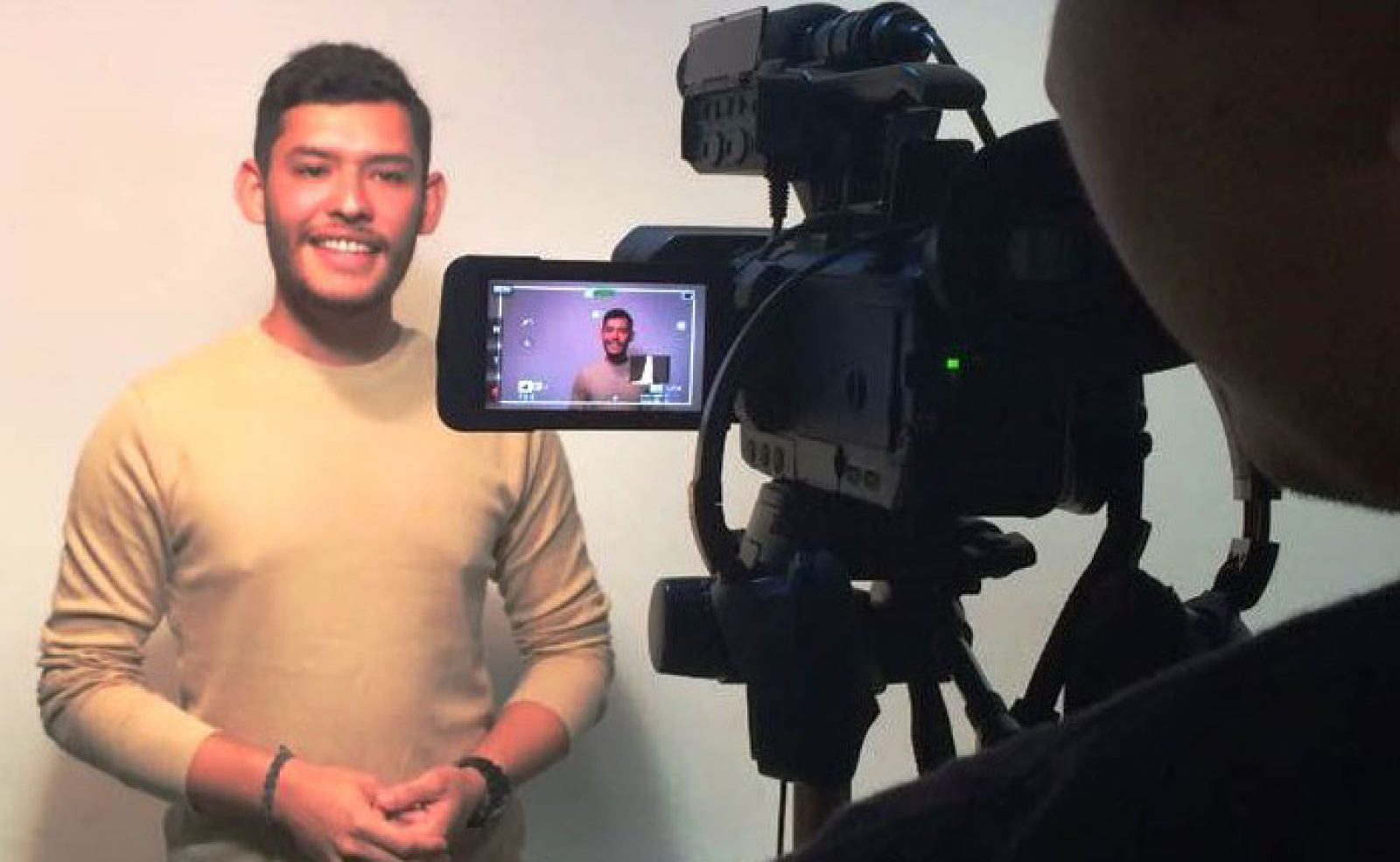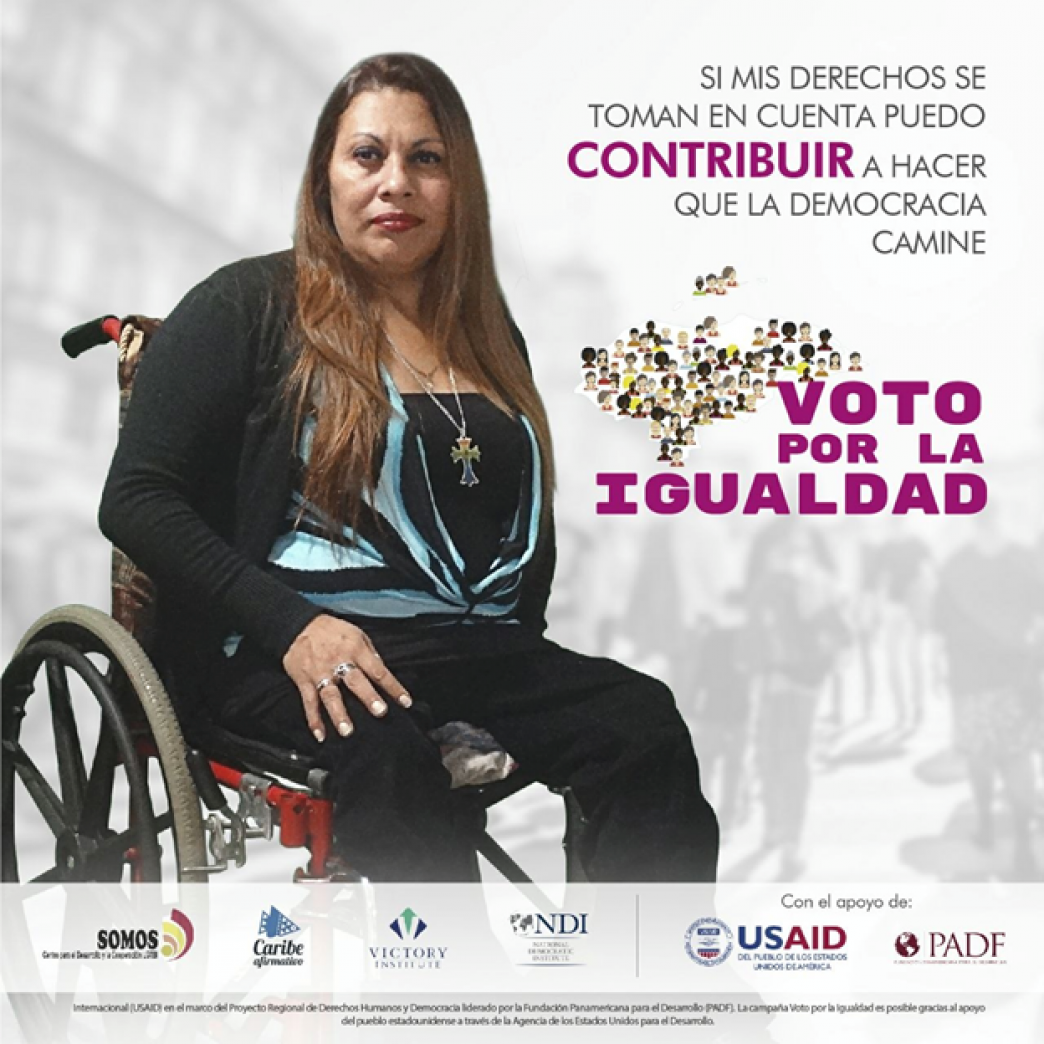
A campaign activist films a video as a part of the Vote for Equality campaign. The campaign brought together organizations from various marginalized populations to advocate together for equality.
SHARE
Hondurans will head to the polls on November 26 to vote in the country’s general election. On September 26 and 27 -- two months prior to this week’s election -- representatives of civil society organizations gathered in Tegucigalpa and San Pedro Sula, Honduras, to launch a campaign titled Vote for Equality. The campaign provides a platform for marginalized populations, pooling their efforts to advocate for equality. The campaign also publishes information on candidate platforms related to inclusion to inform voters in advance of the election.
“For the first time in Honduras, different populations formed an alliance around a campaign and a common goal to promote political inclusion and participation,” said campaign organizer, Jared Andino. “This represents a milestone in Honduras.”
The campaign advocates for more inclusive political party platforms, pro-equality measures and government proposals that can lead to increased protection from violence and discrimination. It was created through a collaboration between the LGBTI Development and Cooperation (Somos Centro para el Desarrollo y la Cooperación, SOMOS CDC) of Honduras, Affirmative Caribbean (Caribe Afirmativo) of Colombia, the Gay and Lesbian Victory Institute of the United States, and NDI.
Honduras Vote for Equality

In the past, advocacy efforts have been more targeted for specific populations, and groups noted challenges in building consensus on campaigns that spread beyond their specific population. Vote for Equality is the first campaign to successfully bring together representatives of various marginalized populations, including persons with disabilities, indigenous and Afro-Honduran populations, women, youth, LGBTI communities, and human rights defenders.
The September launch events brought representatives of marginalized populations together with government officials, congressional and mayoral candidates, and representatives of civil society organizations. In a collaborative atmosphere, participants shared the efforts they were making independently to advance the protection and political participation of marginalized populations. Representatives of the Human Rights Secretariat and the Supreme Electoral Tribunal -- two important government agencies that have a key role in protecting the rights of citizens -- presented measures they planned to implement in advance of the elections. Candidates from six out of the ten political parties competing in the 2017 elections shared advances that their parties have made toward the inclusion and political participation of marginalized populations, such as the inclusion of non-discrimination language in party constitutions. Members of organizations representing marginalized populations shared their progress on legislative and other policy reform proposals to strengthen inclusion and political participation. For example, organizations representing indigenous and Afro-Honduran women, presented a proposal to reform Articles 104 and 105 of the Law on Elections and Political Parties to establish a quota for the participation of indigenous and Afro-Honduran women.
Candidates were invited to sign a Pact for Inclusion, a policy roadmap to address the needs of marginalized populations that aspirants could follow if elected. The names of the candidates who signed the pact appear on the Vote for Equality campaign website, alongside the policy agendas of marginalized populations.
Honduras continues to suffer from staggeringly-high crime rates, and marginalized populations have been increasingly targeted. A number of cases exemplify the extent to which these populations have been targeted:
- Berta Caceres, an indigenous and environmental activist was murdered in March 2016;
- In June 2016, René Martínez, an LGBTI activist and member of the National Party, was also murdered;
- In July 2017, David Valle, a member of SOMOS-CDC was brutally attacked in his home;
- More than 30 Honduran LGBTI activists have been murdered in 2017.
The campaign marks an important and visible step forward in increasing collaboration between organizations advocating for the rights of marginalized populations, and in-so-doing improving their collective ability to influence government institutions and political parties to be more proactive about protecting their rights.
NDI’s assistance to the Vote for Equality campaign is funded by the Pan American Development Fund (PADF) and USAID under the Regional Human Rights Activity.


